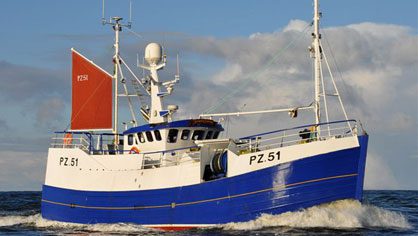News
28 January 2013
The NFFO Executive Committee met recently in York to plan the Federation’s work priorities for the next few months.
- Recognising the potentially momentous changes that the reform of the Common Fisheries Policy could bring– for good and bad – the Committee agreed to redouble the Federation’s efforts in the months ahead, focusing on:
- Maintaining a strong dialogue with Defra
- Briefing MEPs directly and through NFFO briefing papers
- Monitoring the tripartite negotiations between the European Parliament, the Council of Ministers and the European Commission when these begin in March
- The Executive observed that since its establishment, the Marine Management Organisation had faced a series of serious problems, including loss of staff and experience, low morale, and an inability to get to grips with effective delivery of its functions for the fishing industry. On the other hand, a recent meeting between MMO and NFFO on the issues of e-landing declarations, the fish weighing requirements in the EU Control Regulation and the forthcoming procedures for checking on engine power, demonstrated that relatively small, focused meetings can bring a much needed clarity to issues. It was agree to work closely with the MMO in future to ensure that progress is made in establishing a strong and purposeful relationship between the industry and MMO officials at all levels.
- A report was received on meetings with Defra early in the New Year on the effort regime in 2013/14. The freeze in automatic effort reductions secured at the December Council has been greeted with relief and the focus now is in ensuring that the amended EU Cod plan is brought in sooner rather than later. It was agreed that the European Parliament had the power to advance or delay the implementation of the new Plan and resolved to do everything in the Federation’s power to ensure early adoption.
- It was agreed that the Federation should unveil its latest work on the under-10m quota issue to the forthcoming Industry Working Group; developing solutions for the quota pinch-points facing parts of the under-10 fleet is a priority for the Federation. Although this paper is not yet finalised it was thought important to air its central themes and take comments into account.
- It was agreed that the Federation should participate on the UK Fishing Quota Register Project Group, which is being established to provide transparency over quota ownership. The Executive took the sanguine view that the new Register would provide few surprises
- The NFFO Executive took the view that something that the media can label as a “discards ban” is going to be an inevitable part of the CFP reform. There are, however, a multitude of unresolved questions about how an obligation to land all catches would work in practice. The scope for undesirable unintended consequences is quite large and the Committee agreed the Federation should work hard to identify the pitfalls and how to avoid them. Three particular areas were considered vital:
- The danger of relatively minor species in mixed fisheries acting as choke species and preventing vessels from catching their full allocations of their main target species
- The handling of uplift of TACs to cover fish that would otherwise have been discarded
- Whether a reduced number of TACs could be more compatible with a landings requirement and whether TACs could be set for the main driver species alone
- The Federation’s input into initiatives to improve safety and training in the industry were reviewed. It was agreed to:
- Ensure continuity of coverage of the issues by the Federation’s Safety and Training officer, including assistance to vessels in completing their risk assessments and Safety Folders
- Participate in a Seafish review of safety, including the separate but linked issues of:
- using Seafish levy for fishermen’s training
- a broader enquiry on how to improve the industry’s safety culture
- Expedite the distribution of 1000 low cost lifejackets to NFFO member vessels
- A report was received and approved on the Federation’s exhaustive efforts to ensure that marine protected areas are introduced in a rational and evidenced based way. Reports, in particular were received in relation to:
- The work of the MPA Fishing Coalition
- European Marine Sites
- Domestic Marine Conservation Zones
- Management measures for the Dogger Bank
- An annual budget was agreed to address the unbalanced, sensationalist media coverage that has unfairly damaged the industry’s reputation
- The Executive expressed its support for the North East salmon net fishery facing a vindictive and unnecessary phase out
- Representations to Defra were agreed on Norway’s high handed and increasingly discriminatory attitude to applying management rules at Svalbard
- A range of concerns were expressed over the apparent loss of coherence in management associated with devolved administration of UK fisheries. It was agreed to raise these with Defra
- The Executive discussed a range of issues to raise with the Director of Fisheries during his forthcoming meeting with the Federation in York
- Disquiet was expressed that the Isle of Man Authorities had apparently disregarded its Fisheries Management Agreement with Defra in seeking to establish a licence charging regime which would apply to all vessels with a track record of fishing in Manx waters
- The Executive agreed that it would next meet on 7th March in Whitby

